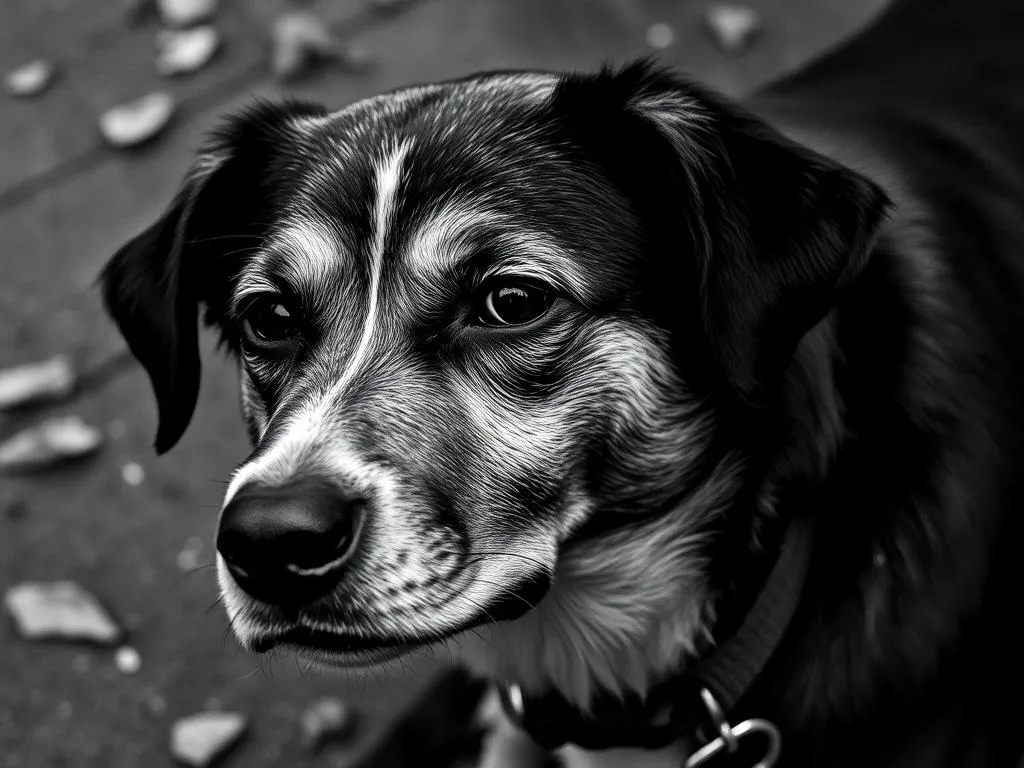Lost Dog Dream Meaning: Uncovering the Symbolic Significance

Introduction
Dreams can be a fascinating window into our subconconscious, revealing hidden emotions, anxieties, and desires. One of the most common dream themes is the lost dog dream meaning. If you’ve ever woken up from a dream where your beloved canine companion has gone missing, you may have found yourself wondering what this dream could signify. In this article, we’ll explore the potential meanings behind the lost dog dream meaning and how it can provide insights into your waking life.
The lost dog dream meaning is a powerful symbol that can represent a range of emotions and experiences. Whether you’re dealing with a sense of loss, uncertainty, or a need for security, this dream can offer valuable clues about what’s going on in your inner world. By understanding the lost dog dream meaning, you can gain a deeper understanding of yourself and potentially find ways to address any underlying issues or concerns.
Potential Meanings of the Lost Dog Dream
1. Loss and Grief
One of the most common interpretations of the lost dog dream meaning is that it reflects a sense of loss or grief. If you’ve recently experienced the passing of a beloved pet or the end of a significant relationship, a dream about a lost dog may be your subconscious’s way of processing these emotions. The dog in your dream may represent the connection and companionship you’ve lost, and the act of searching for it could symbolize your efforts to cope with the grief.
2. Feelings of Vulnerability and Insecurity
The lost dog dream meaning can also suggest feelings of vulnerability or insecurity in your waking life. The dog in your dream may represent a part of yourself that you feel you’ve lost control over or that you’re struggling to protect. This could be related to a specific area of your life, such as your career, relationships, or personal growth.
3. Lack of Control or Autonomy
In some cases, the lost dog dream meaning may indicate a sense of lack of control or autonomy in your life. The lost dog may symbolize a situation or aspect of your life that feels out of your control, such as a major life change, a difficult decision, or a challenging work or personal situation. The act of searching for the lost dog may represent your efforts to regain a sense of agency and direction.
4. Anxiety and Worry
If you often have dreams about a lost dog, it could be a reflection of persistent feelings of anxiety or worry in your waking life. The dog in your dream may represent something or someone that you feel responsible for, and the act of searching for it may symbolize your efforts to manage your concerns and keep things under control.
5. Longing for Connection and Companionship
In some cases, the lost dog dream meaning may suggest a deeper longing for connection, companionship, or a sense of belonging. The dog in your dream may represent a need for emotional support, a close relationship, or a sense of community that you feel is missing in your life. The act of searching for the lost dog may be a reflection of your desire to find that sense of connection and belonging.
Interpreting Your Lost Dog Dream
When it comes to interpreting the lost dog dream meaning, it’s important to consider the specific details and context of your dream. Pay attention to the emotions you experienced, the actions you took, and the overall mood and setting of the dream. These elements can provide valuable clues about the underlying meaning of the dream.
For example, if your dream involved frantically searching for your lost dog, it may suggest feelings of anxiety or a sense of lack of control in your waking life. On the other hand, if the dream felt more peaceful and you were able to find your dog, it could indicate a sense of resolution or a reconnection with a part of yourself that you’ve been missing.
It’s also helpful to consider any recent events or experiences in your life that may be influencing your dreams. If you’ve recently experienced a significant loss or transition, the lost dog dream meaning may be your subconscious’s way of processing those emotions.
Addressing the Meaning of a Lost Dog Dream
Once you’ve identified the potential meaning of your lost dog dream meaning, the next step is to consider how you can apply that insight to your waking life. Here are some suggestions:
-
Reflect on your emotions: Take some time to reflect on the emotions you experienced in your dream, such as fear, anxiety, sadness, or even relief. These emotions can provide valuable clues about what’s going on in your inner world.
-
Identify any areas of concern: Consider if there are any areas of your life where you feel a sense of loss, lack of control, or a need for more connection and support. These may be the areas that the lost dog dream meaning is highlighting.
-
Take action: Based on your insights, consider what steps you can take to address any underlying issues or concerns. This might involve seeking support, making changes in your life, or engaging in self-reflection and personal growth.
-
Practice self-care: Regardless of the specific meaning of your lost dog dream meaning, it’s important to prioritize your own well-being. Make time for activities that help you feel grounded, connected, and in control, such as exercise, meditation, or spending time with loved ones.
Remember, the lost dog dream meaning is a highly personal and complex symbol, and its interpretation can vary from person to person. By approaching your dream with an open and curious mindset, you can gain valuable insights and find ways to address any underlying issues or concerns.
Conclusion
The lost dog dream meaning is a powerful symbol that can reveal a lot about our inner lives and the challenges we’re facing in our waking lives. Whether it’s a sense of loss, vulnerability, or a longing for connection, this dream can provide valuable clues about what’s going on in our subconscious.
By taking the time to reflect on the details and emotions of your lost dog dream meaning, you can gain a deeper understanding of yourself and find ways to address any underlying issues or concerns. Remember, dreams are a highly personal experience, and their interpretation can vary from person to person. By approaching your dreams with an open and curious mindset, you can unlock the hidden wisdom and insights they have to offer.








